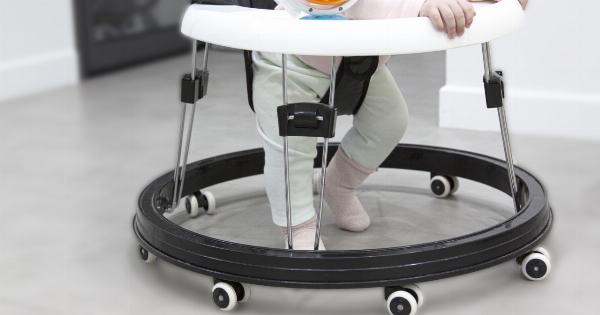Congratulations! You have reached week 14 of your pregnancy, and you are well into your second trimester. At this stage, your body and your baby are undergoing several exciting changes and developments.
Let’s take a closer look at what you can expect during this week.
Physical and Emotional Changes
By week 14, you may notice some visible physical changes in your body. Your baby bump may be starting to show, and you might be experiencing weight gain. Your breasts may also continue to grow and may feel tender or sensitive.
Many women find that their energy levels start to improve during the second trimester, so you may feel less tired and more like yourself. Hormonal changes can also have an impact on your emotions, and you may notice mood swings or heightened emotions.
This is also a good time to discuss any concerns or questions you may have with your healthcare provider. They can provide you with guidance and support throughout your pregnancy journey.
The Baby’s Development
Your baby is growing rapidly during week 14 of pregnancy. At this stage, they are about the size of a lemon, measuring around 3.5 inches in length and weighing around 1.5 ounces.
The baby’s facial features are becoming more defined. Their eyes have moved closer together, and their ears are now in their final position. The mouth is also developing taste buds, preparing for the future joy of eating!.
Internally, your baby’s organs and systems are also developing. Their kidneys are producing urine, which is expelled into the amniotic fluid surrounding them.
The baby’s liver is producing bile, and their digestive system is starting to function as they swallow small amounts of amniotic fluid.
The baby’s skeletal system is also undergoing significant changes. Their bones are beginning to harden, and they now have tiny movements in their arms and legs. However, you may not feel these movements just yet.
Changes in Your Body
Week 14 of pregnancy brings several changes in your body as well. One common symptom is the disappearance of morning sickness for many women.
This is often a relief, as the nausea and vomiting associated with the early stages of pregnancy can be challenging to cope with.
Another change you may notice is an increase in your appetite. As your baby grows, your body requires more energy and nutrients to support their development.
It is essential to make healthy food choices and eat a balanced diet to provide both you and your baby with the necessary nutrients.
You may also experience some skin changes, such as the appearance of a pregnancy glow. Increased blood flow can give your skin a radiant and healthy appearance. However, hormonal changes may also cause acne or changes in your skin pigmentation.
Feeling the Baby’s Movements
While you may not feel your baby’s movements just yet, some women may begin to experience “fluttering” sensations, often described as quickening. These sensations may feel like gentle pops or bubbles in your lower abdomen.
It’s important to note that feeling your baby’s movements can vary from woman to woman. First-time mothers may not feel them until later in the second trimester, around weeks 18-25.
If you have any concerns about your baby’s movements, it’s always best to consult your healthcare provider.
Preparing for the Second Trimester Screening
As you enter week 14, you may want to start considering the second trimester screening tests. These tests are optional and aim to assess the risk of certain genetic conditions and birth defects.
The second trimester screening typically involves a blood test and an ultrasound examination. The blood test measures the levels of specific substances in your blood, while the ultrasound evaluates the baby’s structural development.
It’s important to consult your healthcare provider regarding the second trimester screening options available, the advantages, and any associated risks. They can help you make an informed decision about whether these tests are right for you.
Managing Common Pregnancy Symptoms
Although you may be feeling better overall, some common symptoms may persist during week 14 of pregnancy. Here are a few strategies to help manage them:.
- 1. Nausea and vomiting: If morning sickness continues, try eating small, frequent meals throughout the day and avoiding triggers that worsen your symptoms.
- 2. Back pain: Use proper posture, practice gentle exercises, and consider using a pregnancy pillow or back support.
- 3. Round ligament pain: This common pelvic pain can be managed by changing positions slowly, avoiding sudden movements, and using a warm compress.
- 4. Constipation: Stay hydrated, consume fiber-rich foods, and engage in regular physical activity to encourage bowel movements.
- 5. Breast changes: Wear a supportive, comfortable bra to alleviate discomfort and consider using nipple creams to soothe any irritation.
Monitoring Your Health
Regular prenatal check-ups are crucial to monitor your health and the baby’s well-being.
Your healthcare provider will continue to perform routine tests, such as measuring your blood pressure, checking your weight, and listening to the baby’s heartbeat.
During these visits, do not hesitate to share any concerns or ask questions. Your healthcare provider is there to guide you through your pregnancy journey and provide you with the necessary support.
Conclusion
Week 14 of pregnancy is an exciting time as you enter the second trimester, experiencing physical and emotional changes, and witnessing remarkable developments in your baby.
As you continue on this journey, remember to take care of yourself, eat a healthy diet, and communicate openly with your healthcare provider. Embrace and enjoy this unique phase of your life as you prepare to welcome your little one into the world.

























